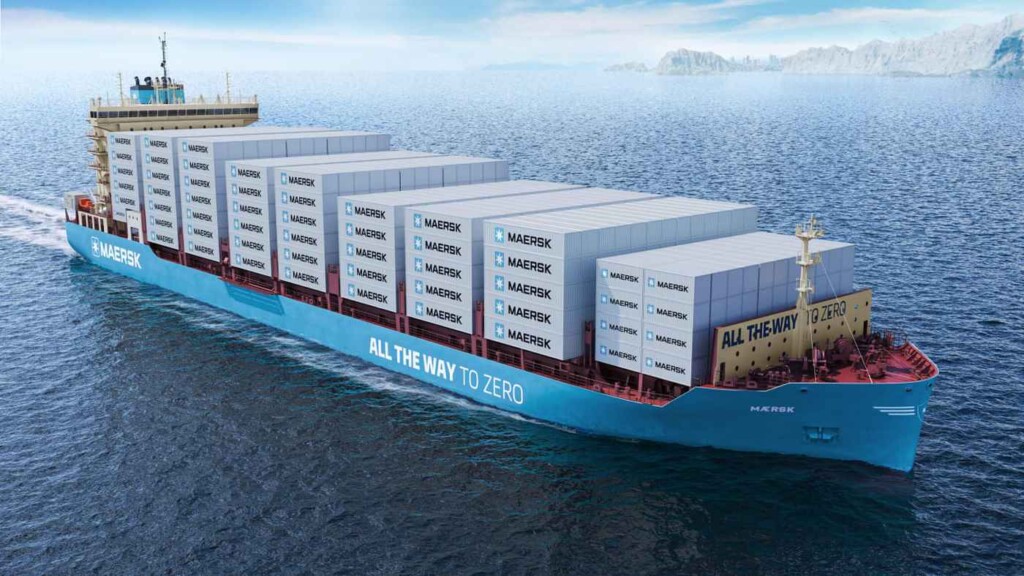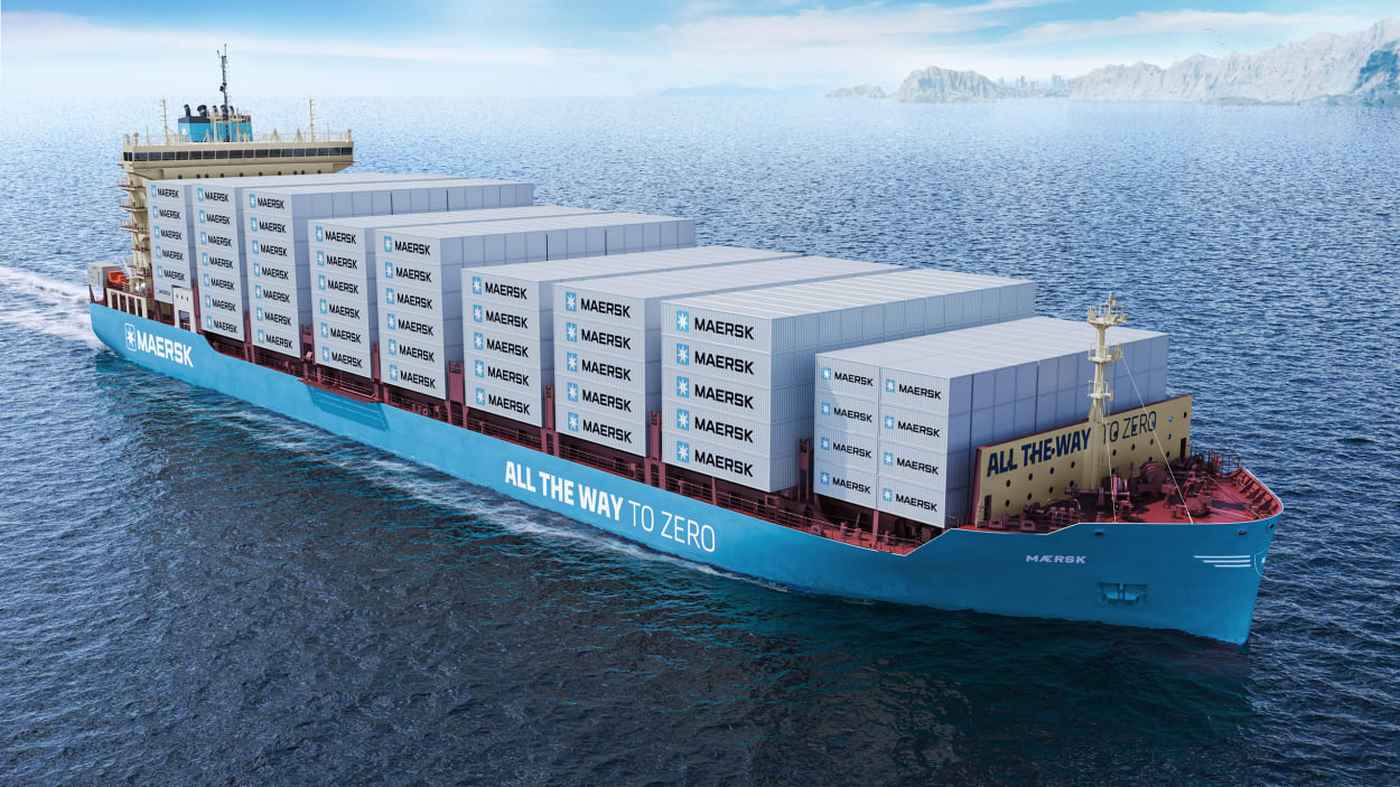
Global merchant shipping leader Maersk is launching a bio-methanol-powered container ship this week as part of its fast-track decarbonization strategy.
Producing about the same emissions globally as the airline industry, merchant shipping is experimenting with several ways of cutting back emissions, including through the use of methanol gas, ammonia, and hydrogen.
While these fuels are anywhere between 200% – 400% more expensive than conventional fuel, because of the massive amounts of cargo the ships are capable of carrying, a pair of shoes might only accrue a related cost increase of five cents.
“There’s this fear, I think, of making the wrong bet or getting it wrong somehow,” Morten Bo Christiansen, who leads decarbonization at Maersk, told an audience at the TED Countdown Summit last week. “And of course, in the ideal world, we would spend a decade figuring out all the pros and cons and what is best. But we need to address this problem now.”
Green methanol is a combustible gas collected from decomposing plant waste and can reduce CO2 emissions and equivalents from a container ship by as much as 70%.
Maersk ordered the ship two years ago and has already placed an order for 25 more methanol-powered vessels in addition to retrofitting existing ships with methanol engines and turbines, according to Fast Company.
MORE LOW-CARBON TRANSPORT: World’s First 100% Hydrogen-Powered Trains Now Running Regional Service in Germany to Replace Diesel
By the end of the decade, the company plans to have low-carbon fuels transport a quarter of all tonnage across its 700-strong fleet.
Globally, shipping companies have 120 vessels with low-carbon or carbon-neutral propulsion systems on order.
Additionally, retrofitting of existing diesel ships with sails is also seen as a fast and easy way to decarbonize.
SHARE This Blue-Green Corporate Milestone With Your Friends…




















